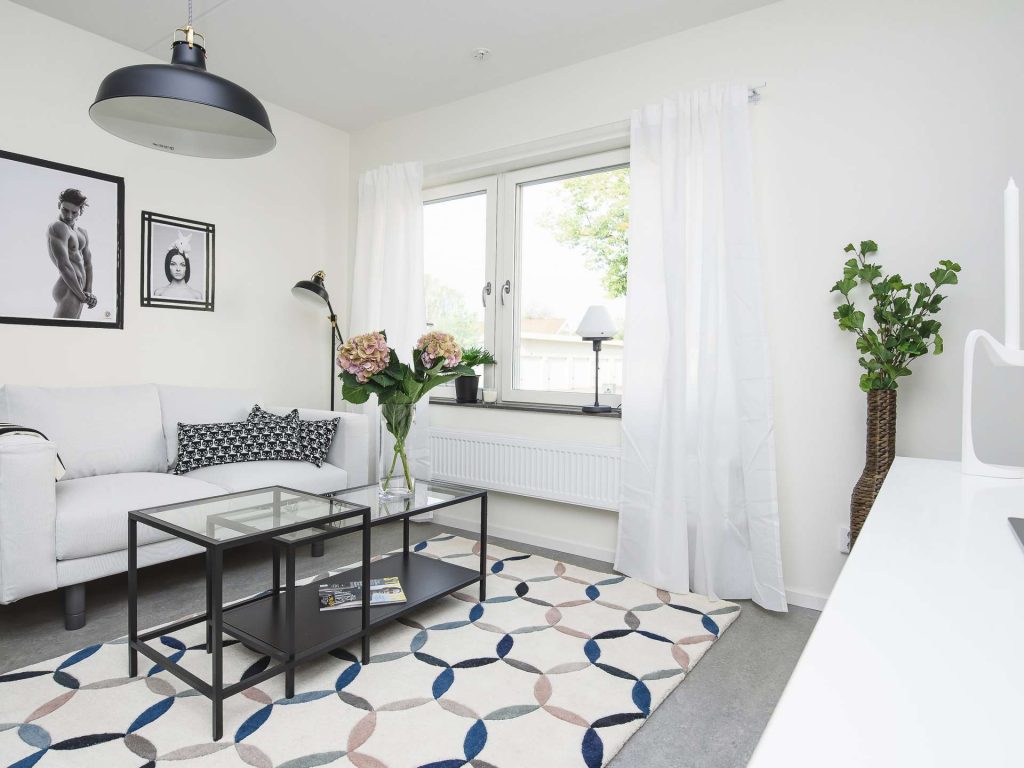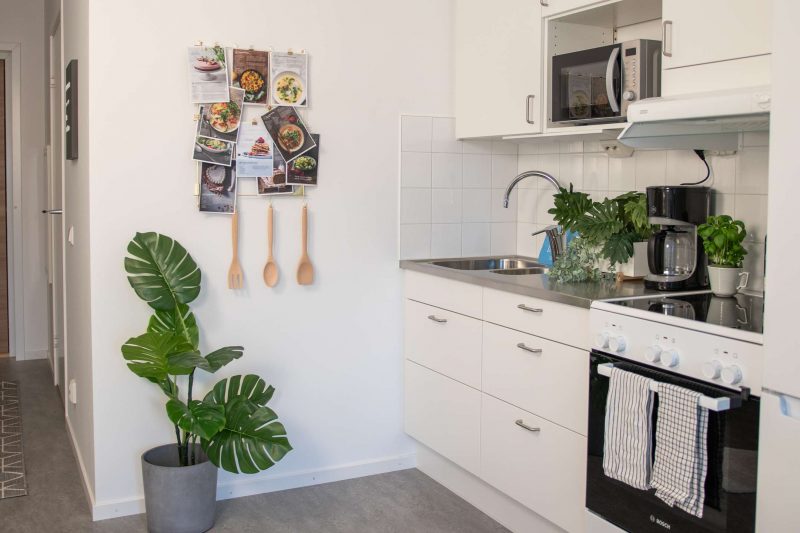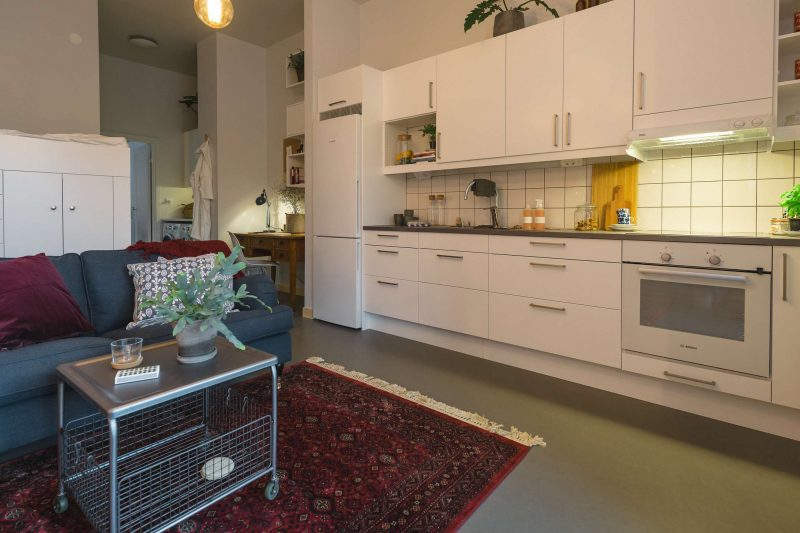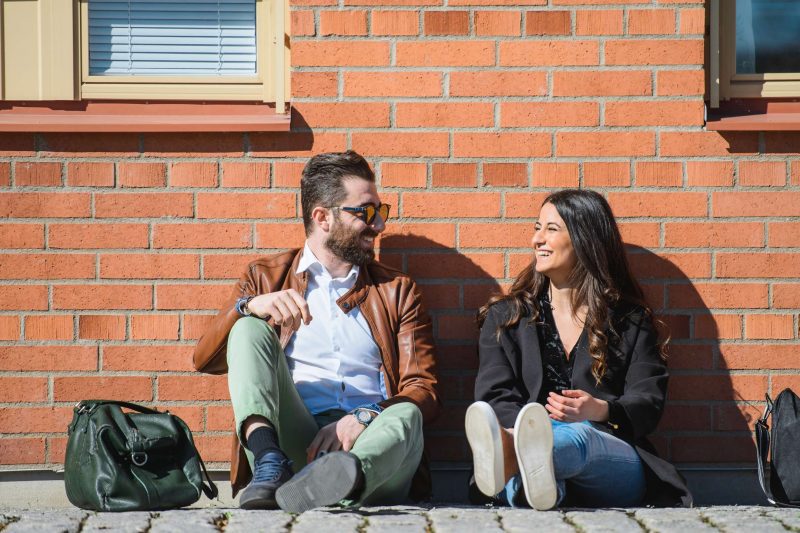

Fire safety
We take a systematic approach to fire safety at our properties. All fire protection equipment is regularly checked according to an inspection programme designed specifically for us by the Swedish Fire Protection Association. The mission of the safety patrol includes, among other things, checking that stairwells, basements and attics are free of combustible materials or obstacles.
How to reduce the risk of fire in your residence
- Your home has at least one smoke detector that we have installed. Check it regularly to be sure it works properly.
- Always blow out any candles when you leave the room. Did you know there are electric candlesticks and battery-powered lights? They are safer.
- Never leave the kitchen when you cook food.
- Do not use household appliances such as a washing machine, dryer or dishwasher during the night when you sleep or when you’re not at home.
- When you charge your phone, both the phone, power outlet and charger become warm. Therefore, do not charge the unit when you have gone to bed. Always unplug the charger when you are done.
- Be careful not to fall asleep while using your laptop, especially when using it on your bed or sofa. The computer and the plug on the cord become very hot. Remember to unplug the power cord when you’re done using the laptop.
What do I do if a fire breaks out?
- The stairwell is an escape route. Therefore it is not allowed to leave any obstacles or flammable items in the stairway enclosure.
- If there is a fire in your home, do not try put it out yourself. Evacuate the residence and close the door.
- If there is a fire in someone else’s residence, and there is smoke in the staircase, stay in your residence and wait for emergency services. Please stand so that you are visible in a window.
Do you hear a smoke detector in your neighbour’s home?
Call 112 to notify them. Remember that the smoke detector stops after a while, even if the danger is not over.
Is it an emergency?
1. SAVE yourself and others in danger. Close the door against the fire.
2. WARN other residents.
3. ALARM Call 112 and be prepared to answer the alarm centre’s questions.
4. EXTINGUISH the fire if you can without endangering yourself.
What happens after the fire?
If there is a fire in your home or in the property, your own household insurance covers damage to your property, furniture and other personal effects. The household insurance also has a liability that covers the costs if you, or someone else in your household, causing a fire through negligence or carelessness.



